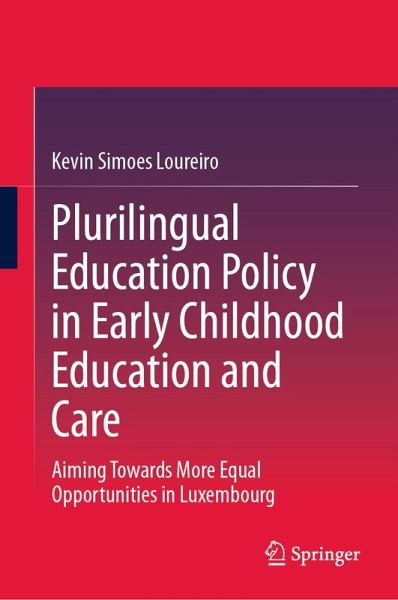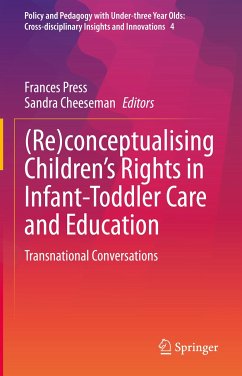
Plurilingual Education Policy in Early Childhood Education and Care (eBook, PDF)
Aiming Towards More Equal Opportunities in Luxembourg
Versandkostenfrei!
Sofort per Download lieferbar
120,95 €
inkl. MwSt.
Weitere Ausgaben:

PAYBACK Punkte
60 °P sammeln!
This book explores the implementation of educational policies aimed at addressing educational inequalities and specifically focuses on Luxembourg's pioneering plurilingual education policy in non-formal early childhood education and care. It emphasizes the significance of developing plurilingual policies that accommodate diverse linguistic and organizational contexts, ensuring more effective implementation and equitable educational opportunities for all children. Through an in-depth analysis, this book provides insights into various aspects of policy implementation. It delves into the drivers ...
This book explores the implementation of educational policies aimed at addressing educational inequalities and specifically focuses on Luxembourg's pioneering plurilingual education policy in non-formal early childhood education and care. It emphasizes the significance of developing plurilingual policies that accommodate diverse linguistic and organizational contexts, ensuring more effective implementation and equitable educational opportunities for all children. Through an in-depth analysis, this book provides insights into various aspects of policy implementation. It delves into the drivers and goals of the plurilingual policy, the measures taken to implement it, the challenges encountered, and the success factors identified at the policy level. Additionally, it examines the attitudes, intentions and obstacles faced by those involved at the practice level. Drawing on a range of theoretical frameworks and empirical studies, the book presents multiple perspectives on the subject. By employing a mixed-methods design, including policy document analysis of the plurilingual education program, expert interviews with policy-level stakeholders and a cross-sectional survey of early childhood practitioners in the non-formal education sector, this work offers a multifaceted approach. The book not only enhances the understanding of policy implementation processes, but also sheds light on the practical implications and potential for reducing educational inequalities in multilingual educational settings. The findings and discussions in this book are, thus, pertinent not only to Luxembourg, but also offer policy- and practice-related implications for similar educational contexts globally.
Dieser Download kann aus rechtlichen Gründen nur mit Rechnungsadresse in A, B, BG, CY, CZ, D, DK, EW, E, FIN, F, GR, HR, H, IRL, I, LT, L, LR, M, NL, PL, P, R, S, SLO, SK ausgeliefert werden.












